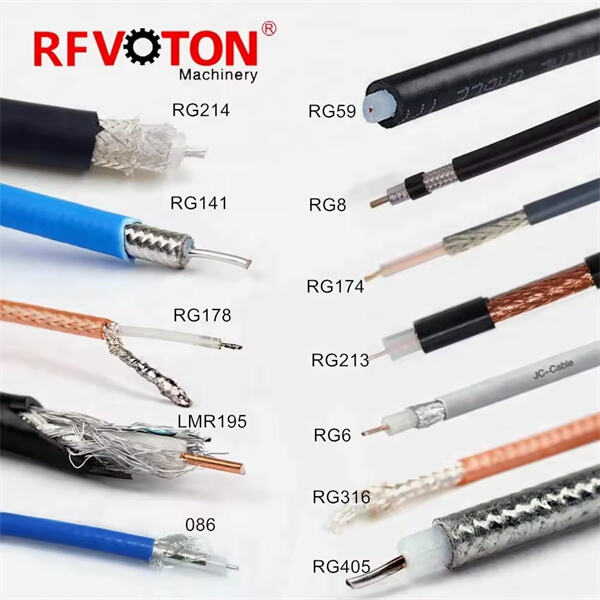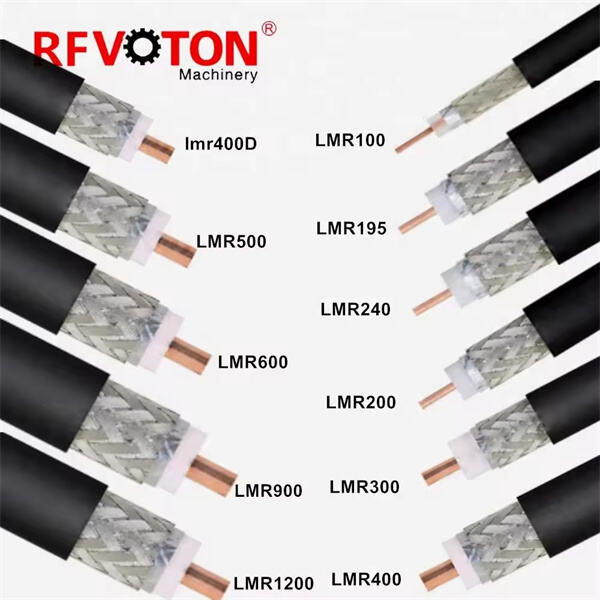Alam mo ba ang tungkol sa RF cables? Ang mga RF cables ay espesyal na mga kable na nagdadala ng mga radio signal. Operasyonal sila tulad ng kung paano nagdadala ng datos at tawag ang mga linya ng telepono. Kailangan namin ng mabuting mga linya ng telepono upang makipag-usap sa ating mga kaibigan at pamilya, ngunit kailangan din namin ng mabuting RF cables para sa maraming mahalagang bagay. Isipin mo ang lahat ng espesyal na lugar kung saan ginagamit ang mga kable na ito: telekomunikasyon (pagpapadala ng mensahe sa mga distansya) at aerospace (eroplano, kalawakan) bilang ilan lamang.
Ang mga low loss RF cable ay isa sa mga espesyal na uri ng RF cable. Ang mga ito ay isang malaking pag-unlad sa teknolohiya. Sila ay nag-aalok ng pagpapabuti sa kalidad ng mga senyal na sinusubmit at tinatanggap namin. Ang artikulong ito ay nakatuon upang magbigay ng mga benepisyo ng isang mabuting low loss RF cable. Ibabahaging pa namin kung paano sila sumisumbong sa pagsasalba ng mga isyu tulad ng interference at signal loss, siguraduhin ang lakas at klaridad ng aming mga senyal.
Ang parehong uri ng pagtutulak ay maaaring mangyari din sa mga senyal ng radio. Pumapasok ang mga low loss RF cables upang tulungan! Sinasadya silang itayo upang minimisahin ang pagtutulak na nangyayari habang iniiwan ang mga senyal. Gamit ang espesyal na mga materyales sa pagsasaalang-alang ng mga low loss RF cables na nawawala lamang ng maliit na halaga ng senyal at kaya nagbibigay ng malakas na transmisyon ng senyal.
Ito ay isang kritikal na katangian sa mga lugar na kailangan ng malinaw na komunikasyon. Sa ospital, konekta ang mga kagamitan ng pamamahayag sa pamamagitan ng RF cables. Ang mga makina na ito ay nagpapahintulot sa mga doktor at nurse na tingnan ang loob ng aming katawan upang tulungan kitang manatili sa kalusugan. May ilang RF cables na nagpapakita ng mababang pagkawala sa iba-ibang aspeto na tumutulong sa ganitong sitwasyon, ngunit kung may pagtutulak, mahirap para sa medikal na kapamilya na makuha ang tunay na impormasyon.

Ang mga kabalyo ng RF na may mababang pagkawala ay itinatayo gamit ang isang espesyal na estraktura na tumutulong sa pagsabog ng pagkawala ng senyal. Makakakuha ang mga senyal na lumipas sa mga kabalyo ng relatibong kaginhawahan dahil sa mga materyales na kinabibilangan sa mga kabalyo. Sa dagdag dito, disenyo ang mga kabalyo kasama ang mga elemento ng pagsasalakay upang maiwasan ang pagiging halubilo mula sa iba pang mga senyal na sumasaklaw sa kanila, kaya lubos na binabawasan ang anumang proseso ng pagkawala ng senyal.

Sa mga iba't ibang aplikasyon ng mga kabalyo ng RF, mahalaga ang pagpapadala ng tiyak at malakas na mga senyal. Ito'y nangangahulugan na kailangang makarating ng kanilang destinasyon mula sa kanilang pinagmulan ang mga senyal nang walang nawawala sa anomang impormasyon na kanilang dinadala. Nakikipag-usap tayo tungkol sa mga industri kung saan tinatrusta ng mga tao ang kaligtasan at mataas na antas ng katumpakan, kaya pati na ang pagkawala ng maliit na bahagi ng impormasyon ay maaaring humantong sa malalaking mga isyu.

Kaya't inihanda ang mga low loss RF cable upang mapabuti ang pagpapasa ng mga signal sa mga aplikasyong ito. Nagreresulta ito sa mas mababang nawawala at interferensya sa signal, kaya naiimprove ang kabuuang transmisyon ng signal. Sa pamamagitan ng paggamit ng advanced na mga teknik sa paggawa at quality materials, maaaring magbigay ng malaking performance ang mga cable na ito sa iba't ibang aplikasyon.